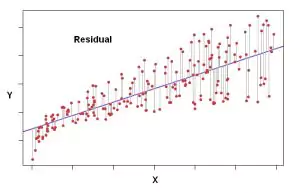In statistics, a case holds a paramount position. It refers to an individual entity about which data is collected. Cases are sometimes also known as individuals in statistics. A dataset, which is a collection of data, is essentially composed of various cases.

✅ AI Essay Writer ✅ AI Detector ✅ Plagchecker ✅ Paraphraser
✅ Summarizer ✅ Citation Generator
Cases Across Different Domains
Education
In education, cases might represent students. For each student, various attributes or variables, like the time studied and exam score, can be observed. For instance, a dataset in a learning institution might consist of cases representing individual students, with variables such as the number of hours they studied and the scores they achieved in exams. You can understand the concept of cases much better by using a statistics assignment helper.
Business
In business, cases in statistics can be extremely useful for retail stores. Here, each case might represent different stores. Variables for these cases could include monthly revenue, number of employees, or customer footfall. Business analysts use cases to perform statistical analysis, which aids in informed decision-making.
Biology
In biology, cases could be various plants or species under observation. Biologists might study variables such as species type, growth rate, and resistance to diseases. The dataset will consist of the cases (plants) along with the readings of their respective variables.
The Relation Between Cases and Variables
In any dataset, a case is characterized by its attributes, which are called variables. Each case in a dataset will have values for each variable. For example, in a dataset of students, each student (case) will have values for variables such as age, grade, and test scores.
Examples Illustrating Cases
Here are a few examples that will help you to understand the concept of cases in a better way:
- In a dataset of a school, students would be the cases with variables like age, class, and marks obtained.
- In a plant biology research dataset, different species of plants could be the cases with variables such as the rate of photosynthesis, height, and number of leaves.
- In a dataset for a chain of stores, each store would be a case with variables like store location, total sales, and number of customers.
Cases in Statistics: Summary
To sum it up, cases are individual units in a dataset. Each case has several attributes or variables that provide data for statistical analysis. Cases are crucial in various fields like education, business, and biology, as they form the basis of any dataset.
FAQ
How are cases and variables related in statistical analysis?
Cases and variables are inherently linked in statistical analysis. A case represents an individual unit about which data is collected, whereas variables are the attributes or characteristics of each case.
Are cases and experimental units the same thing in statistics?
Cases can be referred to as experimental units when they are used in experiments. In this context, an experimental unit is the smallest unit of experimental analysis, which is essentially what a case is.
How do cases and variables contribute to statistical analysis?
Cases provide the fundamental units for analysis, while variables provide the attributes or characteristics of these units. Together, they allow for comprehensive analysis by providing a structure to the data.
What is the Difference between cases and observations in statistics?
In statistics, cases and observations are often used interchangeably. However, technically, a case refers to the individual unit, while observation refers to the data recorded for each variable for a particular case.
Follow us on Reddit for more insights and updates.





Comments (0)
Welcome to A*Help comments!
We’re all about debate and discussion at A*Help.
We value the diverse opinions of users, so you may find points of view that you don’t agree with. And that’s cool. However, there are certain things we’re not OK with: attempts to manipulate our data in any way, for example, or the posting of discriminative, offensive, hateful, or disparaging material.